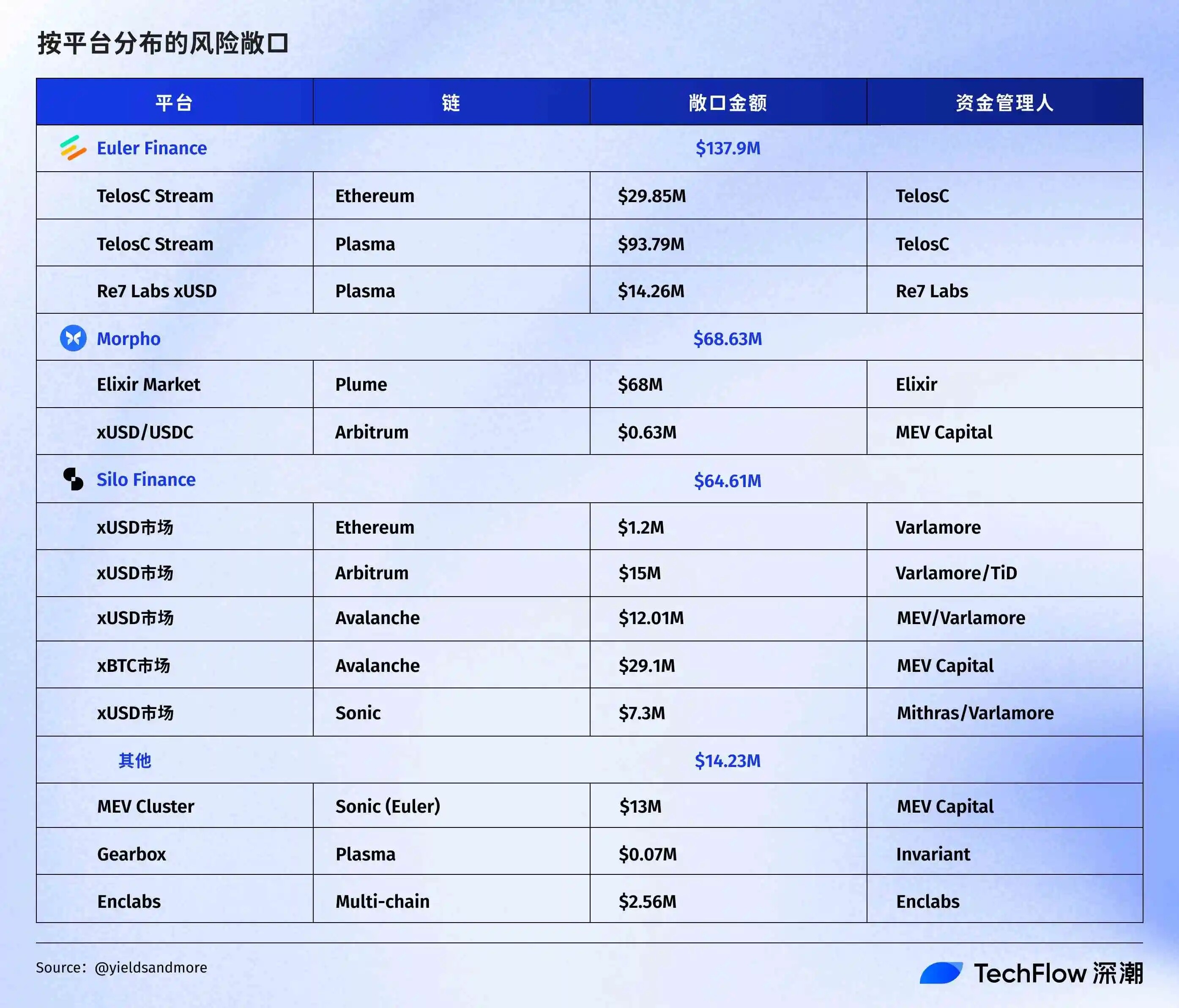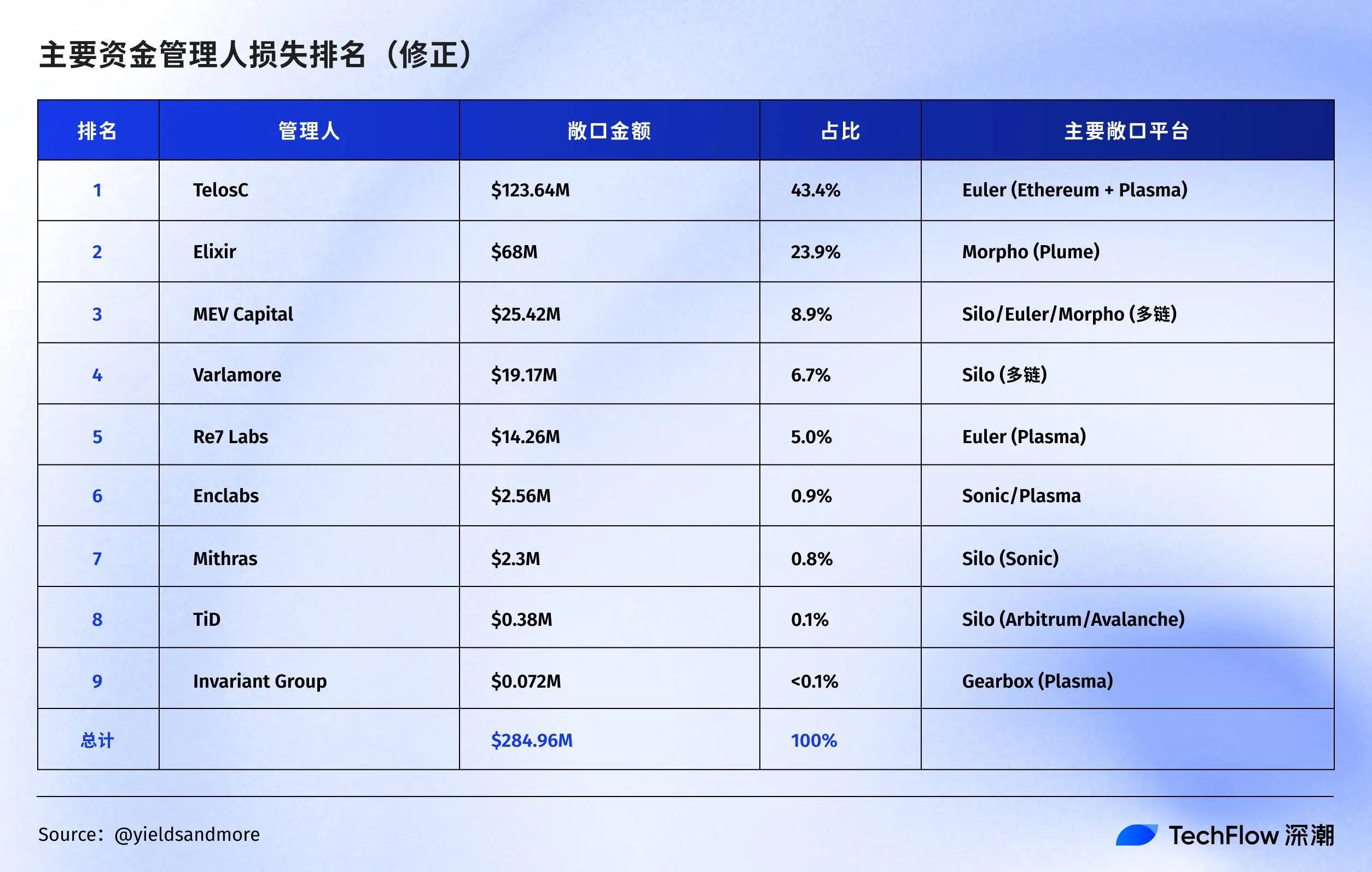「每周编辑精选」是 Odaily星球日报 的一档“功能性”栏目。星球日报在每周覆盖大量即时资讯的基础上,也会发布许多优质的深度分析内容,但它们也许会藏在信息流和热点新闻中,与你擦肩而过。
因此,我们编辑部将于每周六从过去7天发布的内容中,摘选一些值得花费时间品读、收藏的优质文章,从数据分析、行业判断、观点输出等角度,给身处加密世界的你带来新的启发。
下面,来和我们一起阅读吧:

宏观市场
与上届政府相比,美国财政部正通过关税和支出限制来收回流动性。全球流动性周期正在见顶回落。
本轮量化宽松实际上相当于将政府债务货币化,这正是当前局势与以往不同的根本之处,它看起来更具风险、更具通胀性。
财政部重新启动支出之时,TGA 余额有望自高位回落,流动性重返、风险偏好回升。比特币或正处在这轮调整的“最后一跌”阶段——在财政支出恢复与未来降息周期开启的交汇点,新的流动性周期也将随之重启。
长期来看,全球经济似乎已经深陷债务-放水-泡沫的循环而无法自拔。
这场由政府停摆意外触发的危机,可能只是下一轮更大规模流动性狂潮来临前的序曲。
加密市场正处于盘整阶段,而非崩溃前兆。
投资与创业
什么策略都不如买 BTC。
通过一系列并购,Ripple 的系统能力已从单一的跨境支付,扩展为「稳定币发行 + 机构托管 + 跨链清算」的全栈式金融基础设施。
Ripple 的本质是一个巨大的 「数字资产国库」 ,且带合规溢价。
Ripple 的故事变成了一个最古典的金融故事:关于资产、关于估值、关于流动性管理。
有些投资者甚至会强迫加密创始人迎合当前的潮流,而其团队则会开始评估投资那些凭借本季度热门叙事获得融资的项目。没有人会坚持足够长的时间去验证所做的事情是否有效,而是遇到阻力就转型,用户增长缓慢也转型,融资困难也选择转型。
市场会惩罚那些完成的项目。因为一个已完成的产品有其已知的局限性,而一个“即将完成”的产品仍然拥有无限的叙事潜力。VC 不投资产品,他们投资的是关注度。团队和用户的注意力也非常短暂。
加密货币难以构建任何长期产品,因为它从结构上就与长期思维背道而驰。
另推荐:《加密巨鲸操作集锦:内幕者周浮亏 4000 万美元,跟单者惨遭血洗》《100%胜率巨鲸的杠杆覆灭:21 天赌局,14 连胜终结,4467 万美元蒸发》《麻吉大哥“归零”记》《我做了一个月永续合约交易,从幻想暴富到人间清醒》。
隐私
买入 ZEC 为砸盘 BTC?隐私币暴涨背后的 4 大行业真相
隐私币市场热情重燃:美国政府没收 150 亿美元 BTC 或成直接导火索;名人背书、机构站台,隐私币重获流动性;隐私项目发展不停,技术升级不断。
而隐私板块涨,往往是 BTC 兑现砸盘的兆头。
隐私币复兴:从币安下架候选到暴涨 13 倍,ZEC 的闪电重生
功能上,屏蔽交易,实现可选隐私;环境下,在监管阴影下的“逆反力量”隐私需求激增;减半预期与名人背书点燃了稀缺性叙事引擎;合约结构上,散户离场,庄家进场。
3 个月 20 倍,ZEC 的「比特币白银」叙事站得住脚吗?
隐私叙事的上涨逻辑主要有:监管下的「避难所溢价」,ZEC 的灰度效应,币圈版本之子的共同仓位。
未来 12-24 个月内,ZEC 的屏蔽池余额能否继续增长?机构是否会通过 灰度这样的合规渠道配置 ZEC?监管压力会压垮 ZEC 还是反而强化它的稀缺性? 这些问题的答案将决定 ZEC 的「比特币白银」叙事是否能够成立,也将决定这轮隐私币行情的持续性和深度。
透明的加密货币无法在政府的严厉打击下生存。
Zcash 的用户体验有所提升(例如 Zashi 钱包)。跨链意图通道降低了操作门槛(NEAR Intents)。
首次有超过 30% 的 ZEC 供应量存储在屏蔽资金池中。但与比特币相比,Zcash 的全节点数量仍然很少。
空投机会和交互指南
十月 Binance Alpha 数据回测,“僧多肉少”新常态下如何优化策略?
积分上升,收益下滑,“长情”不如“闪卖”。如今的 Binance Alpha 可能再也不会重现九月那般的财富效应了,但如果能做到严格纪律、控制磨损,仍有机会拿到一些相对稳定的“猪脚饭”。
edgeX、StandX、Lighter。
在 Polymarket、Opinion、Kalshi 体验预测全指南。
另推荐:《手把手带你参与 Brevis 第二阶段任务》《Circle 自家稳定币公链 Arc 测试网交互攻略》《MSX 积分赛季 S1 全攻略:如何通过 RWA 美股交易获取「双重 Alpha」》《热门交互合集 | StandX 新一轮赚积分活动;Stable 测试网攻略(11 月 7 日)》。
Meme
GIGGLE 惊现“过山车”行情,BSC 生态闪崩是谁的责任?
比特币生态
CeFi & DeFi
当市场不再为故事付费,企业就必须用结构、策略和透明度来重新赢得信任。
CZ 建仓 ASTER,这次能否撼动 Hyperliquid 的地位?
CZ 建仓 Aster 背后绝非一时兴起,而是深思熟虑的战略布局。其喊单本质上是为 BNB Chain 生态产品“引流”,更多流动性流入 BNB Chain,刺激 Gas 费和 DeFi 活动。
Perp DEX 赛道竞争激烈,Aster 的低费率、代币化股票、暗池交易、网格等让其脱颖而出。而真正的衍生品大战好戏还在后头。
权力的游戏:从特朗普到 CZ,亿万富翁们为何纷纷押注“预测市场”
这个市场既有潜力成为一个前所未有的信息聚合工具,让“群体的智慧”以前所未有的效率闪光;也可能沦为一个被巨额资本和政治权力俘获的舆论战场,让“最大的钱包”定义什么是“真相”。
有超过 80 亿美元的真金白银,正被交由数量众多、背景各异的 Curator 们管理。
传统 DeFi 协议之所以相对安全,正是因为它们最大限度地排除了「人」的变量。而 DeFi 协议的 Curator 模式,却将「人」这个最大的、最不可预测的风险,重新请回了区块链。当信任取代了代码,当透明变成了黑箱,维系 DeFi 安全的基石便已崩塌。
透明度,远比去中心化的标签本身更为重要。
另推荐:《DeFi 中的 Curator 角色是什么?会是本轮周期的暗雷吗?》《预测市场 2.0 前瞻:“纯赌”外的 5 种新产品形态》。
安全
Balancer 被盗余震未平,xUSD 脱锚会影响你的哪些资产?


另推荐:《深度解析 xUSD 脱锚真相:10·11 大暴跌引发的多米诺危机》。
一周热点恶补
过去的一周内,市场下行;安全事故频发,形成连锁反应;Alpha Arena 第一季结束,Qwen 最后时刻反超 Deepseek 夺冠;nofi AI 主管:下一季“炒币大赛”拟大幅优化基准测试(AI 炒币大赛总结);
此外,政策与宏观市场方面,David Sacks:加密货币市场结构立法已取得实质进展,或将很快推出两党联合草案;特朗普呼吁结束政府停摆并直言美股屡创新高仅是开端;白宫称特朗普签署 CZ 赦免令前经过了严肃和彻底的审查;日本金融厅:将支持三大银行共同发行稳定币,促进支付领域创新;香港将允许本地许可的虚拟资产交易平台与海外关联公司共享全球订单簿,以增加流动性;
观点与发声方面,高盛:美国政府停摆可能对美国经济造成有史以来最严重的打击;Arthur Hayes:美国政府停摆结束后BTC 和 ZEC 将上涨;Bitwise:比特币已接近“触底”,机构投资者仍持看涨态度;Wintermute 展望后市:资金流入停滞,市场进入存量博弈阶段;Bitwise CIO:散户情绪已处“极度绝望”,但加密寒冬并未到来;Matrixport:比特币正接近超卖区域,当前价位可考虑逢低布局;Matrixport:市场或进一步下探,但不足说明 BTC 行情已结束;易理华:ETH 基本面没问题,逐步“抄底”是最好策略;DeFiance Capital 创始人:当前市场环境堪比 2018 至 2019 年,生存才是唯一的目标;AllianceDAO 联创 QwQiao:多数聪明交易员已转向看空,市场情绪日趋谨慎;
Maelstrom 联创怒喷 Pantera:四年前投的 LP 本金已近腰斩,同期 BTC 都涨了 2 倍;CZ:GIGGLE 并非 Giggle Academy 官方推出的代币;何一:Giggle 代币未来会进入通缩模式;CZ:每次买入都“被套”;CZ:市场涨跌与我无关,发推不会影响行情;CZ:曾在 8 年前 BNB TGE 首月买入 BNB并一直持有;
机构、大公司与头部项目方面,Google Finance将集成 Kalshi 与 Polymarket 预测市场数据;Gemini 计划布局预测市场,已申请衍生品交易牌照;BNB Chain 发布Fermi Hardfork 版本;BNB Chain:opBNB 测试网的Fourier 硬分叉即将上线;MetaMask 推出奖励计划,并强调和未来的 TGE 有关联但不同;Pump.fun推出实用代币支持计划 Spotlight;Jupiter 已通过“销毁 1.3 亿枚已回购 JUP”的提案;ZKsync 创始人发布ZK 代币更新提案:所有网络收入将用于回购并销毁 ZK 代币;Zcash(ZEC)开发商发布 2025 Q4 路线图,代币近一个月上涨 800%;KITE 上线空投查询;Aria 公布代币经济学:总供应量 10 亿枚,社区及生态占比 61%;UnifAI 公布代币经济学模型:总供应量为 10 亿枚,生态系统和社区分配 13.33%;Timefun宣布关闭创作者代币平台,转型加密社交新应用;
数据上,收益稳定币经历 Luna 暴雷以来最大单周资金流出,总计 10 亿美元;
安全方面,Stream Finance:因 9300 万美元资产损失,已暂停存取款;Balancer 遭攻击,后发布v2 漏洞事件初步报告:批量兑换交易四舍五入逻辑错误被利用;XUSD 进一步脱锚,24 小时跌超 57%;xUSD 脱锚后Euler 上预言机数据未及时更新,或导致坏账;Yei Finance:fastUSD 市场出现异常,已暂停协议,后称用户资金安全可全额提现,团队将偿还主池全部债务;Notional 将关闭 V3 协议以应对 Balancer 攻击造成的坏账风险;ether.fi 官方说明流动性金库安全,用户可随时查询金库状态及风险敞口;Berachain:已协调暂停网络,以进行紧急硬分叉修复 BEX 上与 Balancer V2 相关漏洞;Berachain:因漏洞失窃的全部资金已追回,区块链现已恢复运行;Garden Finance 联创确认因攻击损失约 1100 万美元,用户资金安全未受影响;Aave 创始人:不可变预言机与利率机制或引发系统性风险,资产管理者利益冲突加剧行业隐患……嗯,又是跌宕起伏的一周。
附《每周编辑精选》系列传送门。
下期再会~
免责声明:本文章仅代表作者个人观点,不代表本平台的立场和观点。本文章仅供信息分享,不构成对任何人的任何投资建议。用户与作者之间的任何争议,与本平台无关。如网页中刊载的文章或图片涉及侵权,请提供相关的权利证明和身份证明发送邮件到support@aicoin.com,本平台相关工作人员将会进行核查。



